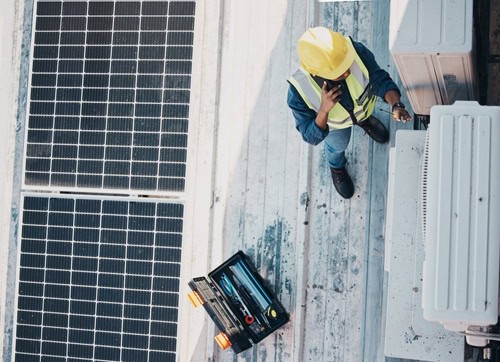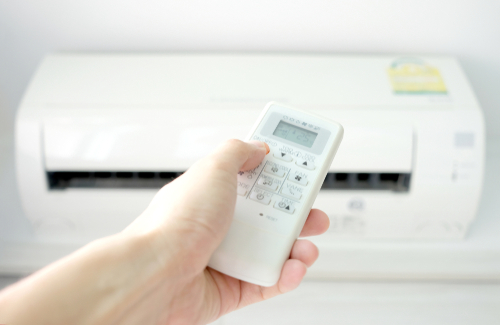
Aircon Repair – DIY vs Professional Help
November 24, 2023
The Essential Guide to Aircon Maintenance Before CNY
January 19, 2024Optimizing Your Aircon: Preparing for High-Usage Periods in Singapore
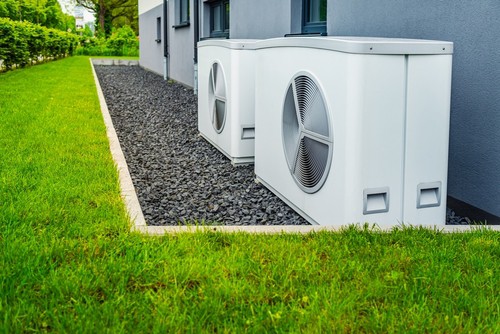
Optimizing Your Aircon Preparing for High-Usage Periods in Singapore
Optimizing Your Aircon: Preparing for High-Usage Periods in Singapore. In Singapore’s tropical climate, reliance on air conditioning skyrockets during high-usage periods.
Preparing your aircon for these times is not just about ensuring comfort but also about maintaining efficiency and preventing breakdowns. This comprehensive guide covers all aspects of optimizing your air conditioning system for peak performance.
Read on – Optimizing Your Aircon: Preparing for High-Usage Periods in Singapore:
Assessing Your Aircon’s Current Condition
Begin with a basic inspection of your aircon. Check for any visible damage, ensure that the unit is free of obstructions, and listen for unusual sounds during operation. This initial assessment can provide an early warning of potential problems.
Early indicators of aircon issues include unusual noises, such as grinding or hissing sounds, reduced cooling efficiency, unpleasant odors, water leaks, or increased energy bills. Addressing these signs promptly can prevent more serious issues and costly repairs.
Cleaning and Maintenance
Thorough Cleaning: A Step-by-Step Guide
- Turn Off the Power: Always turn off the power supply before starting any cleaning.
- Filter Maintenance: Remove and clean the filters. This is crucial as dirty filters hamper airflow and efficiency.
- Clean the Exterior: Wipe down the exterior of the unit to remove any dust or debris.
- Inspect and Clean the Fins: Carefully clean the fins using a soft brush or a fin comb. Bent fins can restrict airflow, so straighten them if necessary.
- Check the Condensate Drain: Ensure the drain is not clogged as this can cause water leakage and humidity issues.
Replacing or Cleaning Air Filters
Air filters are the first line of defense in maintaining air quality and should be cleaned or replaced every three months, or more frequently during high usage.
Checking and Cleaning Aircon Coils
The evaporator and condenser coils are prone to dirt accumulation, which can reduce heat absorption and increase energy consumption. Clean these coils gently with a brush or a specialized coil cleaner.
Professional Servicing
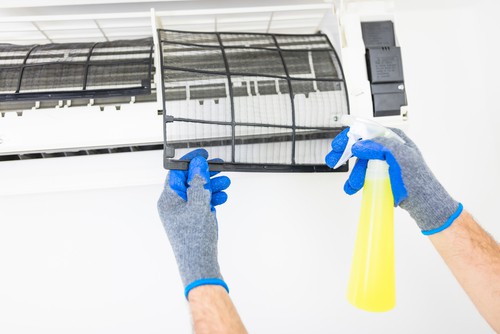
Professional servicing goes beyond basic cleaning. It includes comprehensive checks of the refrigerant levels, electrical connections, thermostats, and ductwork. This ensures that your aircon is not just clean but also in optimal working condition.
What to Expect During a Professional Aircon Service
A professional service typically includes:
- In-depth Cleaning: Deep cleaning of coils, filters, and blower components.
- Refrigerant Check: Ensuring the refrigerant level is adequate for efficient operation.
- Inspecting Electrical Components: Checking and securing electrical connections for safety and efficiency.
- System Performance Tests: Verifying that the thermostat and the entire system are functioning correctly.
Optimizing for Efficiency
Adjusting Settings for Optimal Performance
Adjust the thermostat to a comfortable yet energy-efficient temperature, ideally between 24 to 26 degrees Celsius. Consider using eco-friendly or energy-saving modes if available.
Tips for Reducing Energy Consumption
- Utilize Programmable Thermostats: These can adjust temperatures according to your daily schedule, reducing energy waste.
- Opt for Inverter Models: If you’re considering a new purchase, inverter models can be more energy-efficient.
- Insulate Your Space: Proper insulation keeps the cool air in, reducing the workload on your aircon.
Ensuring Continuous Performance
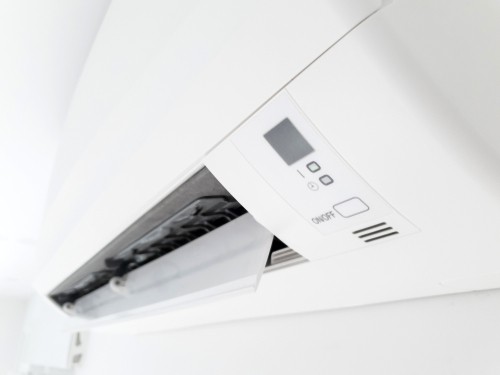
Keep a close eye on your aircon’s performance. If you notice any decline in efficiency or unusual behavior, address it immediately to avoid exacerbating the issue.
Regular cleaning and maintenance can prevent common issues like the aircon freezing up, overheating, or experiencing increased wear and tear.
Preparing for Specific Conditions
Ensure that your aircon’s dehumidifier function is working efficiently. This is vital in Singapore’s humid climate as it helps in maintaining comfort and prevents mold growth.
Use fans or consider zoning systems for consistent cooling in different areas. Ensure the aircon isn’t blocked by furniture or curtains, which can lead to uneven cooling.
Additional Considerations
Integrate good ventilation practices with air conditioning. This can improve indoor air quality and reduce the load on your aircon.
Know your aircon’s capacity. Overloading the unit can lead to inefficiency and breakdowns. If your unit consistently struggles to cool your space, it might be time for an upgrade.
Frequently Asked Questions About Aircon Optimization
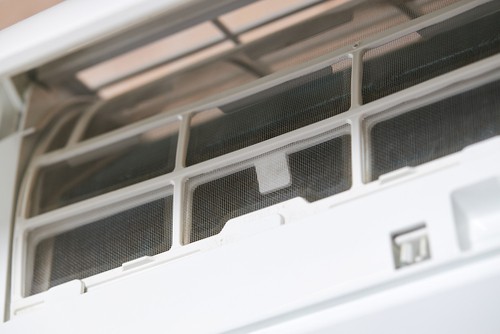
1. How Often Should I Check the Refrigerant Levels in My Aircon?
It’s advisable to check the refrigerant levels at least once a year, typically as part of a professional service. However, if you notice your aircon struggling to cool or producing warm air, it might be time for an immediate check.
2. Can Ceiling Fans Improve Aircon Efficiency?
Yes, ceiling fans can complement your aircon by circulating cool air more evenly throughout the room. This can allow you to set the aircon at a slightly higher temperature while maintaining comfort, thereby saving energy.
3. Should I Turn Off My Aircon When I’m Not Home?
Turning off your aircon when you’re not home can save energy. However, for shorter absences, consider simply raising the thermostat a few degrees instead of turning it off entirely. This prevents your aircon from working too hard to cool down a hot room when you return.
4. How Does Outside Temperature Affect My Aircon’s Efficiency?
Higher outside temperatures can make your aircon work harder, thus reducing its efficiency. On extremely hot days, try to minimize other sources of heat inside your home, like ovens or direct sunlight, to ease the load on your aircon.
5. What Is the Best Way to Clean Aircon Vents?
The best way to clean aircon vents is to first turn off the unit, then use a vacuum with a brush attachment to remove dust and debris. For more thorough cleaning, you can gently wash the vents with soapy water, ensuring they are completely dry before replacing.
6. How Can I Tell If My Aircon is Overworked?
Signs of an overworked aircon include frequent cycling on and off, inability to reach the set temperature, or the unit becoming unusually noisy. These symptoms suggest that your aircon is struggling to keep up with the cooling demand.
Optimizing Your Aircon: Preparing for High-Usage Periods in Singapore – Conclusion:
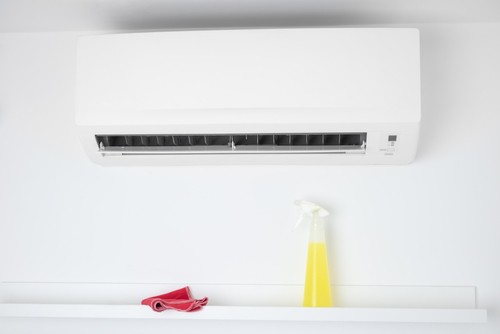
Preparing your aircon for high-usage periods in Singapore’s climate is crucial for maintaining comfort, efficiency, and longevity.
Regular maintenance, professional servicing, and optimization of settings can make a significant difference in your aircon’s performance.
By following these guidelines, you can enjoy a cool, comfortable environment while keeping energy costs in check.
Ready to ensure your aircon is optimized for peak performance? Don’t wait until it’s too late!
Take proactive steps today to prepare your air conditioning system for the high-usage periods ahead.
Remember, regular maintenance and early detection of potential issues are key to avoiding costly repairs and ensuring efficient, continuous cooling in Singapore’s tropical climate.
Let’s work together to keep your environment comfortable and your energy bills low. Act now for a cooler, more efficient tomorrow! Contact us today!

